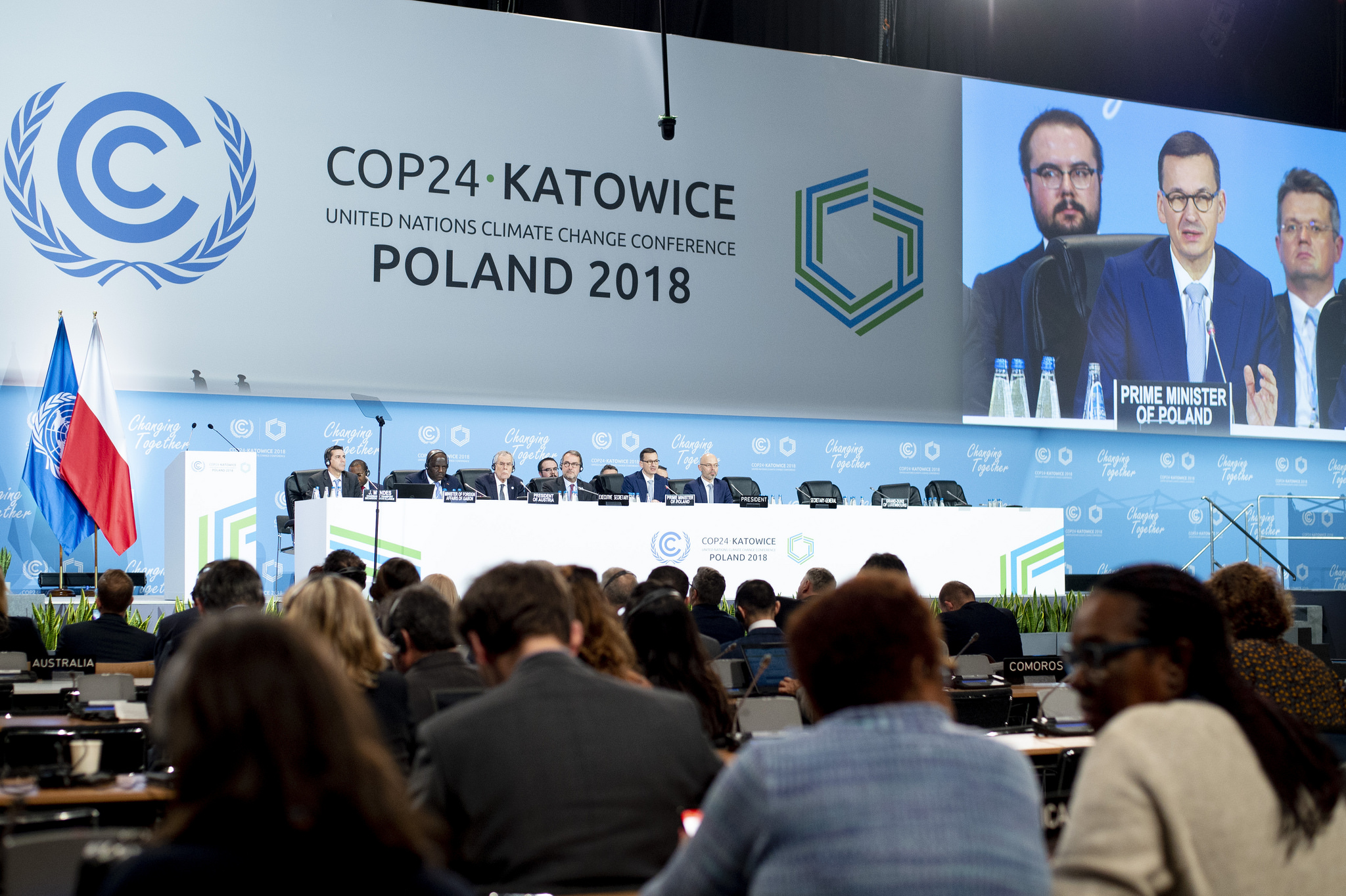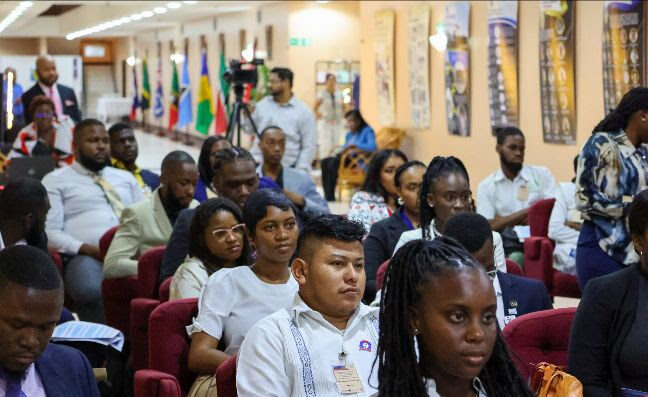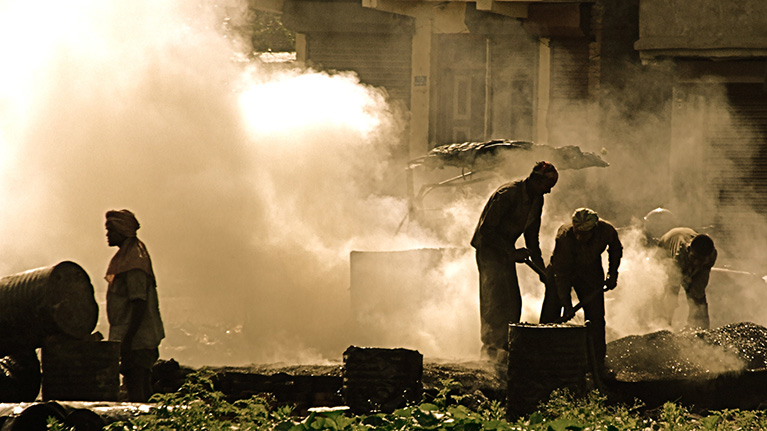CARICOM entered the 24th Session of the UNFCCC COP24 in Poland with unified negotiating positions, conscious that global climate change not only threatens the environment but also has deleterious consequences to the Region’s economic development.
The Caribbean Community (CARICOM) fine-tuned its negotiating positions at a recent meeting held in Bridgetown, Barbados ahead of the 24th Session of the Conference of Parties to the United Nations Framework Convention on Climate Change (UNFCCC COP 24).
The global meeting on Climate Change is being held in Katowice, Poland from 3-14 December 2018. Barbados Minister of Environment and National Beautification, Trevor Prescod encouraged the regional negotiators to approach the UNFCCC COP 24 mindful of the “Declaration on Climate Action” adopted by CARICOM Heads of Government in Montego Bay, Jamaica July, last.
The Declaration affirmed, inter alia, that CARICOM Heads of State and Government were committed to effectively participating in the negotiation process through to UNFCCC COP 24.
“We should therefore approach Katowice with a positive and unified spirit to support and supplement positions taken by the Alliance of Small Island States (AOSIS) and aim to depart UNFCCC COP 24 with a set of ambitious decisions to realise the full and effective operationalisation of the Paris Agreement and remain on the path to achieve the ultimate goal of the Convention,” the Barbados Environment Minister stated.
“Let us also use our collective voice to call for the developed countries to provide the much needed financial support to small islands so that we can increase our climate resilience and pursue low emission development pathways. Barbados also calls for additional grant finance to be made available for both acute and slow onset events (e.g. sea level rise) that may cause permanent and irreversible damage,” the Minister stated.
Assistant Secretary-General, Directorate of Human and Social Development within the CARICOM Secretariat, Dr Douglas Slater, told the regional negotiators that science emerging from the University of the West Indies alarmingly indicated that even if the world were to pursue a more optimistic trajectory, the timeframe is very short for the Caribbean to prepare for the harsher climate challenges that will emerge at global temperatures at 1.5 or 2 degrees above pre-industrial levels.
However, he said, “This region has rolled up its sleeves and has tackled the impending threat,” referring to the latest Intergovernmental Panel on Climate Change (IPCC) study on the potential impact of a 1.5-degree temperature rise.
The report confirms the concern of the 38 UN recognised Small Island Developing States that their very existence will be threatened by a 1.5 degree rise, much less a 2 degree temperature rise.
Slater said in addition to the excellent work being done within the ambit of the UNFCCC and associated bodies, CARICOM had been addressing climate change “head on” with an “undeterred spirit.”
The slate of actions include the adoption of the CARICOM regional Energy Policy in 2013, immediately followed by the development of a Caribbean Sustainable Energy Roadmap and Strategy or C-SERMS. The Roadmap contained regional targets to move the region to 47 per cent renewables as a share of energy capacity and recommended a 33 per cent reduction in energy intensity.
Another is the “Protocol on Climate Change Adaptation and Disaster Risk Management in Fisheries and Aquaculture” approved by the Caribbean Regional Fisheries Mechanism Ministerial Council as a protocol to the Caribbean Community Common Fisheries Policy (CCCFP).
The addendum to the CCCFP was in response to the urgent and ever-increasing threats to fishing communities, fishers and the health of marine ecosystems and associated fish stocks in the region caused not only by warming waters and climate change, but also by the acidification of the oceans as a result of increased absorption of carbon dioxide from the atmosphere.
The Community is also developing a Caribbean Community Natural Resources Policy Framework, a long term strategy for the sustainable use and management of the environment to improve its ability to bounce back from the impacts of climate change. Ambassador Slater told the meeting that these policies, which also include the 2011 Community Agriculture Policy and current efforts to develop a common water framework and a regional biodiversity strategy, all seek to bring coherence to Member States’ actions for improved environmental performance and governance.
Against this backdrop he stated that CARICOM, in concert with other SIDS Regions, will continue to advocate for stronger global action.
“The region will go forward to all our spheres of engagement be it health, agriculture, tourism, trade and finance and continue to advocate for special attention to the vulnerabilities and special circumstances of CARICOM Member States.”
He noted that CARICOM was “well poised” to execute this task as Belize and Antigua and Barbuda respectively Chair the AOSIS grouping in Poland, and as Barbados assumes the Presidency of the Forum of Ministers of Environment of Latin America and the Caribbean for the next two years.
Minister Prescod also said that the latest IPCC report “should be a wake-up call for all.”
Despite its dire prediction, the report also gives hope, he stated, noting it concluded that it was still feasible to limit global temperature rise above pre-industrial levels to below 1.5 Degrees Celsius, as called for by the Alliance of Small Island States (AOSIS) and enshrined in the Paris Agreement.
“This can only be achieved via ambitious mitigation actions. This should inspire us to do what is required to ensure the survival of those most vulnerable to the adverse impacts of climate change,” Minister Prescod said.
In that context he said Barbados intended to raise its mitigation ambition beyond that communicated in its first Nationally Determined Contribution (NDC), to reflect a new goal to become 100 per cent green and carbon-neutral by 2030.
“I call upon my fellow CARICOM Ministers with responsibility for climate change to re-examine your NDCs in order to determine where we can lead by example through collectively raising our levels of mitigation ambition and communicating such to the international community by submission of updated NDCs to the UNFCCC by 2020,” he stated.
The Meeting which was organised by the Belize headquartered Caribbean Community (CARICOM) Climate Change Centre in collaboration with Climate Analytics and Charles and Associates, consisted of two days of technical discussions and a briefing for Ministers, Ambassadors and other senior officials.
The Government of Germany and Climate Analytics received high commendations for supporting the CARICOM’s preparations to engage effectively in the UNFCCC COP 24.




